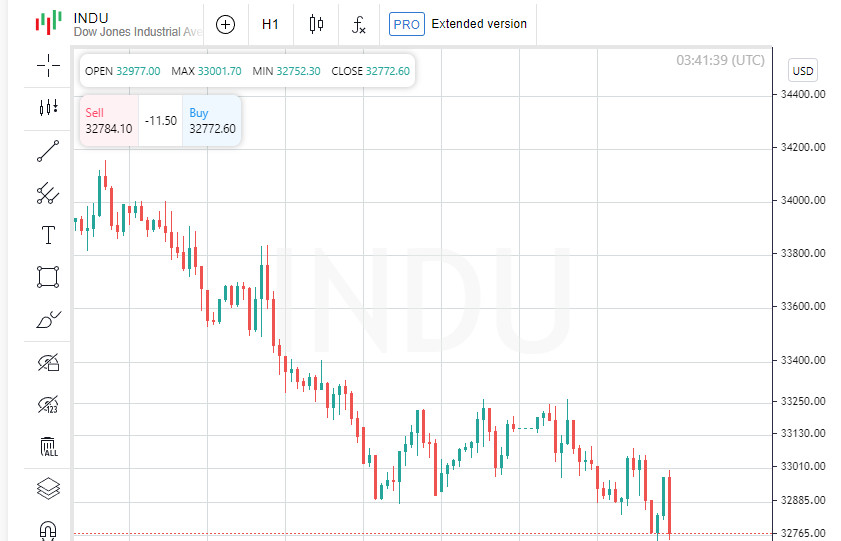
The world of financial investment has entered a challenging era. In recent days, US, European, and Asian stocks have been declining, and the yield on 10-year Treasury bonds has been plummeting. What really caused this instability? The mystery begins with mixed economic and corporate signals that confuse investors. The US economy seems to be thriving, thanks to rising consumer spending and a stable job market, despite predictions of an impending recession. However, business investments remain low, and the construction of new enterprises is losing momentum. Further ambiguity is added by the US inflation data and disposable income, which turned out to be weaker than expected. These factors are pushing the market to believe that interest rates are already close to their peak. The yield on 10-year bonds, for example, suddenly fell to 4.849%, which is 10.4 basis points lower than the day before. This was below the level of 5.021% achieved earlier this week, which was the highest since 2007.
Quincy Crosby, Chief Global Strategist at LPL Financial in Charlotte, expressed concern that the Federal Reserve System (Fed) might be forced to raise interest rates to curb inflation, despite assurances of the Fed's completion of its work. This adds a new layer of volatility to the financial markets.
On this day of events, the Dow Jones index lost 251.63 points, or 0.76%, dropping to 32,784.3. The S&P 500 index fell by 49.54 points, or 1.18%, reaching 4,137.23, and the Nasdaq Composite index lost 225.62 points, or 1.76%, falling to 12,595.61.
Among the 11 major sectors of the S&P 500 index, the highest percentage losses were noted in the communication services sector, which fell by 2.6%, while the real estate sector showed the largest growth, rising by 2.2% for the session. Thus, the world of financial investment has entered a period of change and uncertainty, and investors must carefully decipher these mixed signals to make informed decisions.
In today's financial news world, shares of two giants - Tesla (TSLA.O) and Microsoft (MSFT.O), lost 3.1% and 3.75% respectively. The reason for this decline was higher interest rates. It should be noted that this decrease came after an unsuccessful session of Alphabet (GOOGL.O) shares, which fell by 9.5%, marking the worst performance since March 2020. Investors were disappointed with the slowdown in growth in the company's cloud sector. Additionally, Amazon.com (AMZN.O) anticipates that revenue in the fourth quarter will be below analysts' expectations, which also influenced the overall market sentiment.
Ken Mahoney, CEO of Mahoney Asset Management in Montvale, New Jersey, opined that large tech companies continue to grow, but at a decelerating pace. He stated that the recent stock prices of these companies are "very hard to justify" with current interest rates hovering around 5%. "Market participants thought they'd be in for a treat, not a trick," he summarized his thoughts.
In Europe, the European Central Bank decided to halt its longest series of interest rate hikes in 25 years, maintaining its benchmark rate at a record high of 4.0%. The Bank also announced that the latest data points to a slow decrease in inflation towards its target of 2%.
The euro remained virtually stable for the day, while the broader European STOXX index fell by about 0.5%, nearing a seven-month low set the previous week (.STOXX). These events highlight the continued influence of various factors on financial markets, and investors have to be cautious and analytical in their decisions.
Wednesday proved eventful in the financial world. European banks took center stage when shares of Standard Chartered (STAN.L) dropped 12.4% following an unexpected announcement of a one-third profit decline in the third quarter. A similar trend impacted BNP Paribas (BNPP.PA) shares, which fell 2.6% after financial results were released. The global MSCI stock index (MIWD00000PUS) also showed a negative trend, dropping 1.1%.
In the currency markets, the dollar index strengthened to 106.6, buoyed by higher yields. The Japanese yen, in turn, weakened, rising above 150 per dollar, raising concerns about possible interventions to support the Japanese currency.
Oil prices also felt the squeeze due to rising US crude oil reserves and a strengthening dollar. The ongoing Middle East conflict, although a focal point for traders, couldn't halt the slide in oil prices. US oil prices dropped 2.26% to reach $83.46 per barrel, and Brent crude fell 2.16%, settling at $88.18 per barrel.
Gold, on the other hand, continued its ascent, growing 0.3% and hitting $1985 per ounce, close to a five-month peak.
Trading volume on US exchanges amounted to 11.63 billion shares, surpassing the average over the last 20 trading days, which was 10.72 billion shares. These events underscore the volatility and unpredictability of financial markets in contemporary times.
 English
English 
 Русский
Русский Bahasa Indonesia
Bahasa Indonesia Bahasa Malay
Bahasa Malay ไทย
ไทย Español
Español Deutsch
Deutsch Български
Български Français
Français Tiếng Việt
Tiếng Việt 中文
中文 বাংলা
বাংলা हिन्दी
हिन्दी Čeština
Čeština Українська
Українська Română
Română

